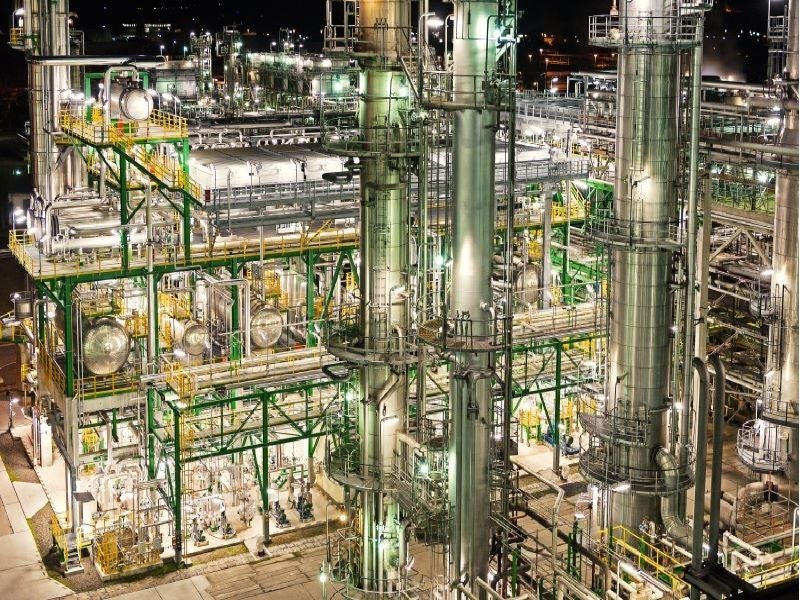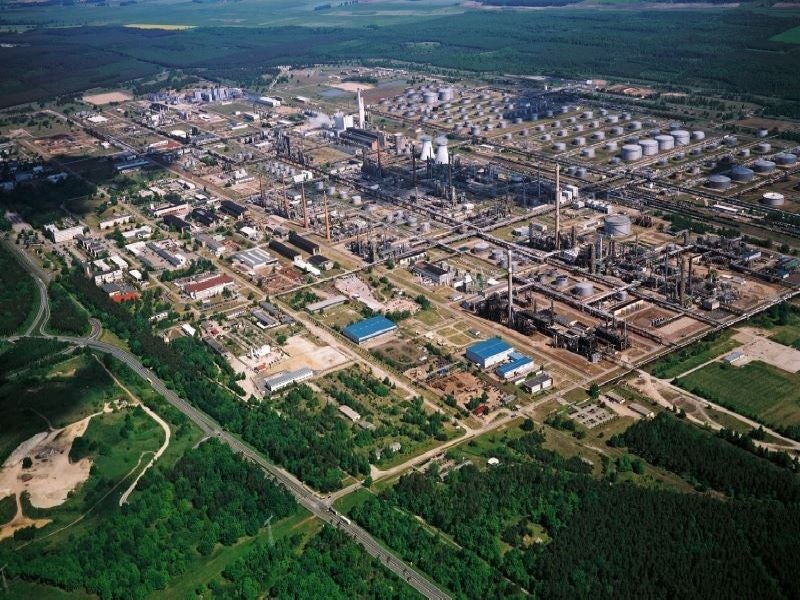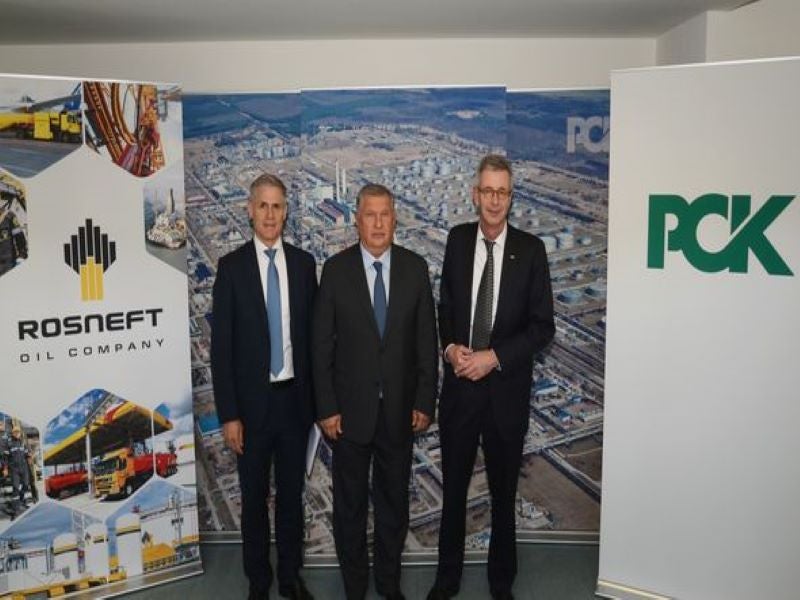The PCK Refinery located in Schwedt, Germany has a crude oil processing capacity of approximately 11.6 million tonnes a year (Mtpa).
PCK Raffinerie GmbH is the owner and operator of the refinery. Rosneft Deutschland, a subsidiary of Russia-based Rosneft, holds a 54.17% stake in PCK Raffinerie, while Shell Deutschland, a subsidiary of Royal Dutch Shell, holds a 37.5% stake with the remaining 8.33% stake held by Eni Deutschland, a wholly-owned subsidiary of Italian oil major Eni.
Shell Deutschland agreed to sell its 37.5% stake in PCK Raffinerie to Alcmene, a subsidiary of Estonia-based oil terminals operator Liwathon, in July 2021. The move is part of the Anglo-Dutch oil and gas multinational’s strategy to narrow down its refinery business around the world.
Subject to regulatory approval, the transaction is scheduled for completion in the second half of 2021. The other partners Rosneft and Eni have also pre-emption rights to acquire Shell’s stake in PCK Raffinerie.
Location
The PCK refinery site is located in Schwedt/Oder, approximately 120km northeast of Berlin. It is situated near the Germany-Poland border, in the Brandenburg state of Germany.
Refinery products
The PCK Refinery handles Ural crude exported from Russia and has a Nelson Complexity Index of 9.8. It produces a range of refinery products, including petrol, diesel, aviation turbine fuel, LPG, extra light heating oil, heavy fuel oil, bitumen, benzene, toluene, xylene, and sulphur.
It is the major supplier of auto fuels to the Berlin and the Brandenburg markets. The refinery also supplies aviation turbine fuel to the airports in Berlin.
Refinery process modules
The various processing units in the PCK oil refinery include an atmospheric distillation facility of 11.48Mtpa capacity, a 6.3Mtpa vacuum distillation facility, a 3Mtpa catalytic cracking facility, a 1.84Mtpa visbreaking facility, a 420,000tpa alkylation unit, a 1.53Mtpa catalytic reformer facility, a 575,000tpa isomerisation unit, and a 96,000tpa ethyl tertiary butyl ether (ETBE) facility.
A new main control room, spread over 1,000m² in the refinery complex, started operations in 2016.
Pipeline infrastructure
The refinery receives majority of the crude oil supply through the Druzhba pipeline from Russia. PCK Raffinerie holds a 45% stake in the German section of the Druzhba pipeline.
The Druzhba crude oil pipeline originates in south-eastern Russia, and at Mozyr in Belarus, it is split into the Northern and Southern Druzbha lines. The Northern Druzbha line passes through Poland and reaches Heinersdorf in Germany.
A 203km-long pipeline from the Rostock Port on the Baltic coast of Germany also supplies crude oil to the refinery. The pipeline is owned by PCK Raffinerie. The assets of PCK Raffinerie also include a crude oil tank farm and a pier in the Rostock oil port.
The Rostock to Schwedt pipeline is connected to the Northern Drzubha line at Heinersdorf.
A 78km-long products pipeline from Schwedt to Seefeld, also owned by PCK Raffinerie, supplies auto fuels to Berlin.
Recently awarded contracts
Jungmann Systemtechnik was contracted for interior design and supply of technical equipment for the new control room at the PCK refinery.
Porner Group executed revamp works on multiple process units at the PCK refinery, while EDL Anlagenbau Gesellschaft (EDL), a Porner Group company, was responsible for the replacement of the regenerator at the FCC plant, as well as for the replacement of the vacuum column and the stripper column at a crude oil distillation unit of the refinery in 2016.
Porner Group also executed the revamp of the stripping column in the refinery’s FCC gas concentration plant in 2010.





